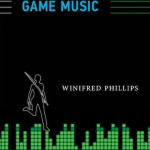If you are reading this site you obviously have a keen interest in game music, you may even be a game composer yourself.
However, I suspect there is also a reasonable percentage of readers who are composers outside of games, want to get involved, but don’t really know how to get started. Either that or a fear lingering fears are holding them back.
Whenever I’ve spoken to composers looking at getting into games, apart from the problem of actually finding work (which is more of a practical issue), they nearly always have three fears that they mention:
- What if I’m not a gamer?
- What if I don’t know anything about interactive music?
- I’m not sure my music is not good enough and I first need to learn [insert skill, software or strange music theory lesson].
These concerns are natural, and indeed I had these concerns myself when I started.
Learn To Play Games (This Is A Must)
Technically you may be able to work on a video game without regularly playing any games at all. I did exactly this when I started. If the game is a small mobile app for example, you may well only have to supply a couple of looping tracks.
The rather more interesting question is – why would you not want to be a gamer if you want to work in games? I very quickly asked myself this and remedied the situation straight away.
Even if you are not a natural 24/7 gamer, you still need to know the genres, styles and terminology of the industry so you are able to talk to game developers without saying ‘err…what?’ every two minutes.
Apart from this though, a more important aspect of starting to play games more regularly is that you will start to develop a feel for what games you like, and ultimately what types of games you want to work on. This last point is very important.
When you think about it, Steam is free to download and you can probably get two or three good games for under $20 to get started, so there isn’t really an excuse. Consider it your education.
Educate Yourself For The Long Term
The worry about not knowing interactive music is a genuine concern.
We’ve all heard about the complex audio systems in place with certain games, which seem mindbogglingly complicated. On that note, see this fantastic video from Think Space Education interviewing Mark Angus who worked on Alien Isolation.
Whilst it’s true some games definitely do sound terrifying in regard to the complexity of their audio setup, not all games are like this. I would go so far as to to say most games in the indie world at the kind of level a new composer would be starting at, won’t be that complicated.
Now don’t relax too soon… even a simple game with a few loops can be riddled with dangers for the inexperienced composer. Does your mix translate to different size speakers, can you render your audio into different formats, why is that MP3 clicking when it’s looped? (It amazes me how many games I hear with bad loops that ‘click’!)
You owe it to yourself (and your clients) as a new composer to educate yourself about the techniques and approaches commonly used in the industry, and this includes interactive music.
There are plenty of YouTube videos, training resources and books available, and whilst it all might seem a bit intimidating initially, consider this learning important, but not urgent. In other words, you do need to do it sometime, but there is no immediate rush to learn all this stuff before your first gig!
You May Not be The Best, But Are You Good Enough?
This last point is often the one where new composers spend the most time. Because they see themselves as an artist and music is their craft, they assume that by getting better at their craft, this will be their road to success.
Now I’m not exactly sure what they think will happen, but it doesn’t matter how good you are as a composer, the flood gates aren’t suddenly going to open with new clients once the world has realized you’ve finished your new music degree.
You could be twice or three times as good as you are now at composing, but nothing would have changed in terms of actually getting work (That’s a whole different set of articles).
The question to ask yourself is – are you good enough to help your game developer achieve what they want to achieve with their game?
There may be areas where you could improve or techniques you need to work on, sure, but I find it much more efficient to work on these when and if you need them rather than somehow predicting in advance what genres or techniques you are going to be required to reproduce in the future.
Just Get Out There And Start
I’m sure there are other concerns and fears apart from not being a gamer, interactive music and the standard of your music, but if these fears have been worrying you, I hope I have helped… a little.
Chris is a guest writer and has over twenty years experience in the music industry. He has written music for a number of games, most notably The Haunt. He also has a site to help composers trying to break into game music over at: www.gamecomposeradvantage.com
Tags: Article, Composers, game audio, Game Music, Indie Composers, Music Production








































